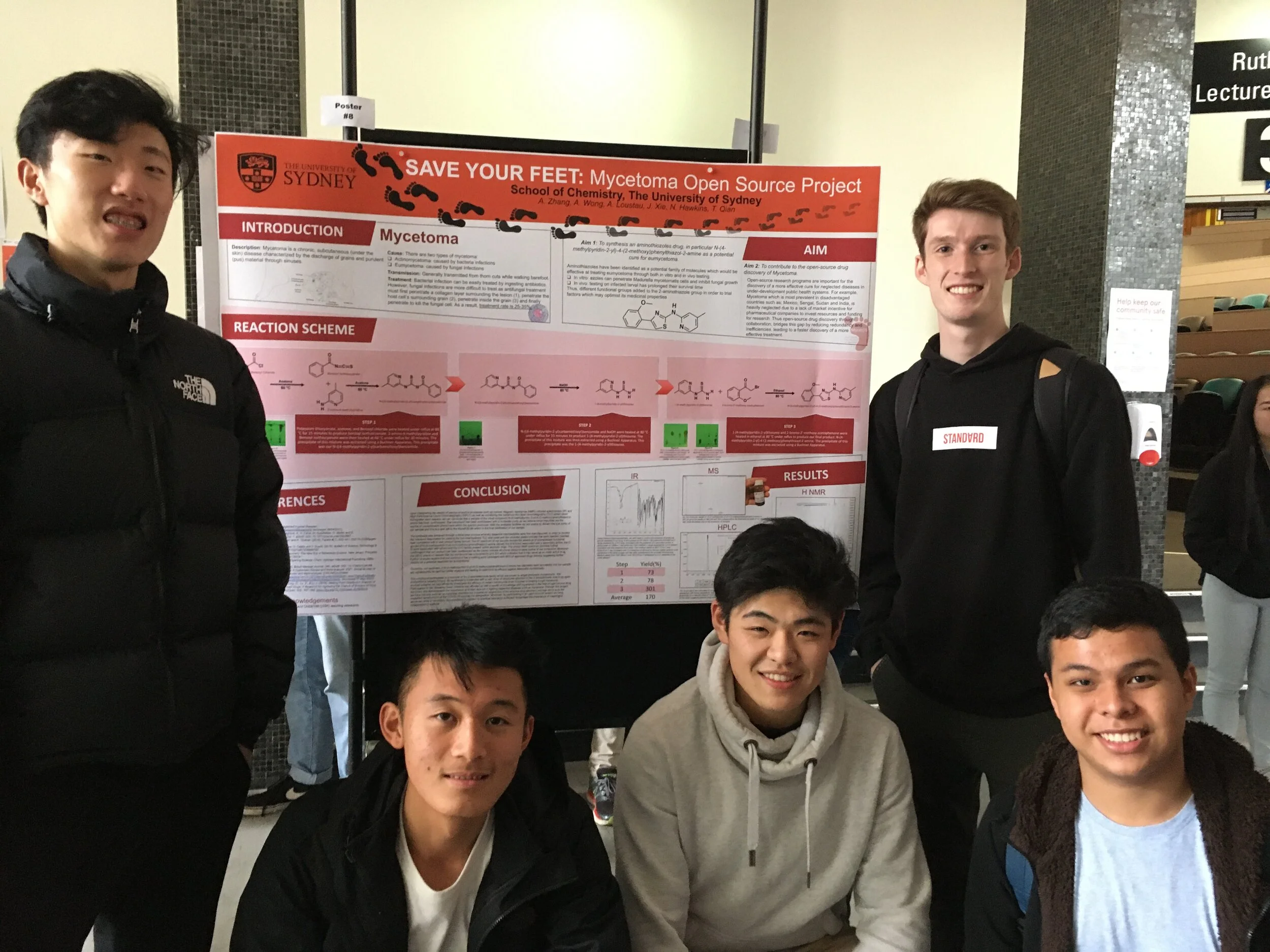Learning in the Laboratory
By Yaela Golumbic
Investigating the learning outcomes of Breaking Good lab programs
Every year, Breaking Good engages undergraduate Special Studies Program (SSP) students from the University of Sydney in the synthesis of brand-new molecules as part of their first-year laboratory training. Over a period of 5-6 weeks, they synthesise novel molecules identified by open source drug discovery consortia (Open Source Malaria and Open Source Mycetoma), as possible candidates for the treatment of diseases. These compounds are then sent off for evaluation.
Recently, the Breaking Good team has set out on a mission to better understand students’ learning experiences through their participation in Breaking Good labs and identify added benefits and learning outcomes from this program. Using a set of qualitative research tools (which focus on understanding concepts, opinions, or experiences using non-numerical data, such as text and audio) including lab observations and student and lab instructor interviews, we explored the why, how and what of laboratory learning. Here is what we found out:
Why? The unique characteristics of Breaking Good as a synthesis-based drug discovery project provided students an authentic and novel learning environment for an important project that can ‘make a difference’. This positively impacted students’ lab experiences and their consequential learning process and outcomes.
How? Facilitating students’ learning experiences were a variety of practices, research methods and scientific resources which were provided to the students. These included chemistry lab techniques, use of instruments and an electronic lab notebook. In addition, the hands-on nature of the course, ongoing instruction by lab demonstrators and students’ collaborative work, provided students with an impactful learning environment.
What? Engaging in Breaking Good labs resulted in several learning outcomes. These included knowledge gains, laboratory skill development, increased motivation to engage with chemistry and science in the future and the ability to transform scientific knowledge to daily life settings. Transfer of knowledge was particularly powerful in the context of the COVID-19 pandemic and the push towards finding effective medications and vaccine development, with students indicating participation in the lab served as an “eye opener” into processes linked to vaccine development.
Overall, findings from this study illustrate a dynamic learning environment characterised by the hands-on, authentic science experience within the labs. The broader context afforded through a citizen science approach was found to enhance student learning and enjoyment, in addition to the consideration of future STEM-based careers. While these findings are positive and rewarding, we continue to improve Breaking Good labs, based on the feedback from students and our own learning from internal evaluation processes. By providing greater context to open source drug discovery and opportunities for student self-reflection and discussion, we hope to inspire deeper conversations about the role of science in society, equity in science and the accessibility of medication to people around the world.
*This research was accepted for publication in the Citizen Science Theory and Practice journal, in a special issue on citizen science in higher education. We will share the link when it becomes available.





